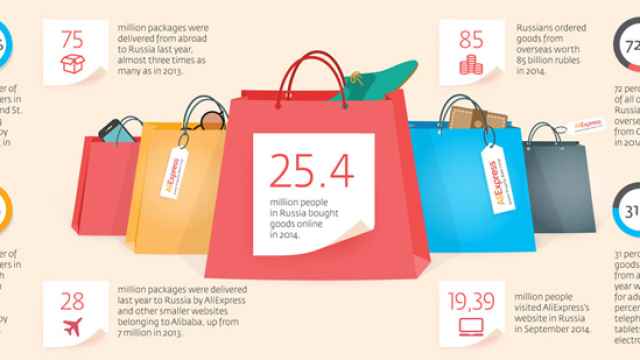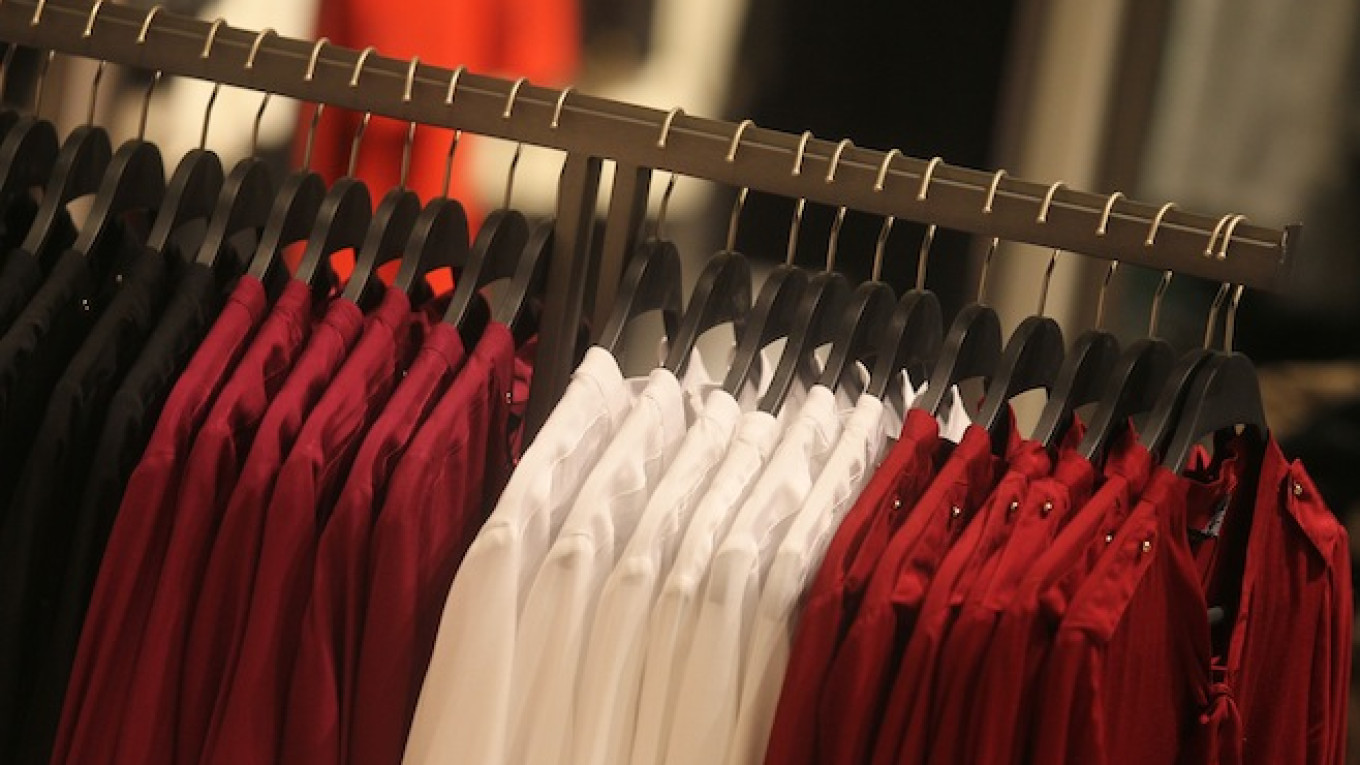China's gigantic online marketplace is preparing to open its? platform to Russian retailers.
In Russia's booming e-commerce market, AliExpress has boomed faster. The online marketplace, part of Chinese Internet sales empire Alibaba, has expanded so rapidly that earlier this year its website views in Russia overtook Facebook, data from market monitor TNS show.
The secret to its success has been price. AliExpress connected Russian shoppers to Chinese sellers, and as online retail penetrates Russia's poorer hinterland, the Chinese company has proven popular among low earners looking for bargains.
But from Nov. 11, Chinese sellers will have to make space, as AliExpress opens its platform for the first time to Russian retailers looking to increase their exposure.
Twenty Russian companies will be first on the website, including those that have their own online stores such as electronics brand Technosila and DIY and gardening store 220 Volt, as well as official resellers of international brands in Russia like home appliances retailer Redmond and cosmetics brand L'Oreal.
Later in November, AliExpress will add a number of fashion brands to its roster. According to Mark Zavadsky, the company's chief executive in Russia, the move marks a first step toward making AliExpress a multinational platform selling brands from all countries.
For AliExpress, opening its platform will enrich its product range in Russia, while the online retailers teaming up with them will expand their visibility.
Maxim Faldin, co-founder of Wikimart, a Russian online supermarket that will also sell via AliExpress from Nov. 11, said his company is looking for more sales, and will act as a middleman between Russian companies and AliExpress, which he said is "a very complicated platform."
AliExpress is adding sellers that fill gaps in its portfolio and do not threaten its Chinese retailers, and Zavadsky said new names would be added on an individual basis. Some of the brands in the first wave, such as L'Oreal and Technosila, sell goods that are either bought locally or are unwieldy to ship from China. Others, such as clothing companies, will have price tags far higher than their Chinese competitors on the site.
These low prices have allowed AliExpress to outpace the market. E-commerce sales in Russia last year grew by just over 40 percent, to 645 billion rubles ($10 billion), according to Data Insight, a research firm, while over the same period, the number of AliExpress orders in the country increased by 400 percent.
For this it can thank not only its Chinese supply base, but a helpful tax regime.
Foreign online retailers are gaining an ever larger share of Russia's Internet retail market because they don't have to pay sales tax and can import goods worth less than 1,000 euros ($1,100) without paying any duty, if they are for personal use, according to the Association of Online Vendors (AITC), which unites many of Russia's largest online retailers.
This means they can dump goods on the market at prices around 20 percent lower than local rivals, said Yekaterina Shuster, AITC's head of communications. By contrast, a Russian company trying to sell in China would have to pay 13-17 percent in sales tax and a 9.5 percent import duty, Shuster said.
With the tax code playing into AliExpress' hands, Russia's economic slump looks set to add momentum.
A sudden fall in the price of oil last year has deflated the Russian economy, and consumers have reacted by switching to cheaper brands and cutting spending by nearly 10 percent over the past 12 months.
Following years of fast growth, Russia's e-commerce market will stay flat this year in ruble terms, AITC said. But that stasis will mask a big shift, it added: Local sellers will see sales contract, while goods delivered from overseas will increase their share of the market to 35-40 percent from around 30 percent in 2014.
AliExpress is set to profit the most. According to Data Insight, the fastest growth in online shoppers is in the regions, where average wages are less than half that of Moscow wages. Already last year, 72 percent of all orders from overseas were from China, up from 45 percent in 2013.
The Russian shops signing up to AliExpress's marketplace want to piggyback off that success, but they may find it tricky.
Every Russian online retailer is looking to the regions to expand, said Anna Sirotkina, commercial director at Baon, a clothing brand that will retail through AliExpress, and the Chinese website is rapidly becoming a key regional player.
"It's an opportunity to grow our audience," she said.
But Baon's goods will sell for on average 10,000 rubles ($155), around five times the average price of purchases made through AliExpress.
"We are waiting for Nov. 11 to see whether our customers and AliExpress's are the same," Sirotkina said. "We have a few worries."
Contact the author at p.hobson@imedia.ru
A Message from The Moscow Times:
Dear readers,
We are facing unprecedented challenges. Russia's Prosecutor General's Office has designated The Moscow Times as an "undesirable" organization, criminalizing our work and putting our staff at risk of prosecution. This follows our earlier unjust labeling as a "foreign agent."
These actions are direct attempts to silence independent journalism in Russia. The authorities claim our work "discredits the decisions of the Russian leadership." We see things differently: we strive to provide accurate, unbiased reporting on Russia.
We, the journalists of The Moscow Times, refuse to be silenced. But to continue our work, we need your help.
Your support, no matter how small, makes a world of difference. If you can, please support us monthly starting from just $2. It's quick to set up, and every contribution makes a significant impact.
By supporting The Moscow Times, you're defending open, independent journalism in the face of repression. Thank you for standing with us.
Remind me later.


